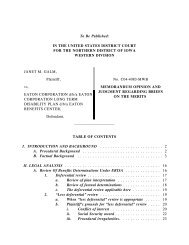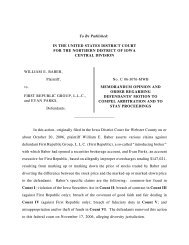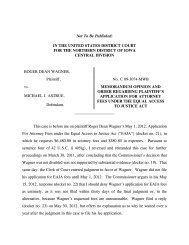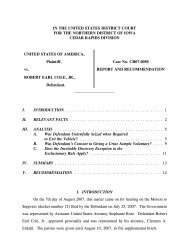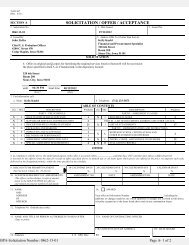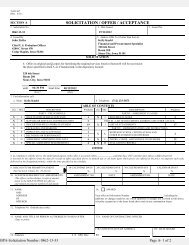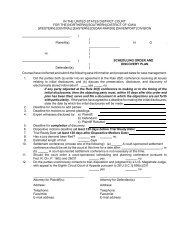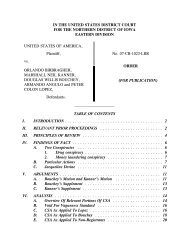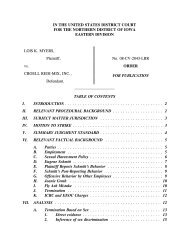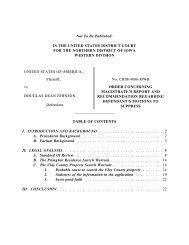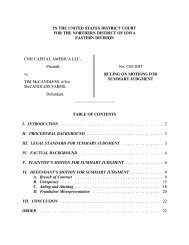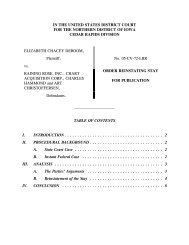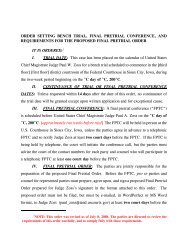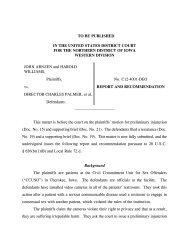Shannon v. Koehler - Northern District of Iowa
Shannon v. Koehler - Northern District of Iowa
Shannon v. Koehler - Northern District of Iowa
Create successful ePaper yourself
Turn your PDF publications into a flip-book with our unique Google optimized e-Paper software.
II. ANALYSIS<br />
As a preliminary matter, I note that Rule 104 <strong>of</strong> the Federal Rules <strong>of</strong> Evidence<br />
provides, generally, that “[p]reliminary questions concerning . . . the admissibility <strong>of</strong><br />
evidence shall be determined by the court . . . .” FED. R. EVID. 104. Such preliminary<br />
questions may depend upon whether the factual conditions or legal standards for the<br />
admission <strong>of</strong> certain evidence have been met. See id., Advisory Committee Notes. This<br />
rule, like the other rules <strong>of</strong> evidence, must be “construed to secure fairness in<br />
administration, elimination <strong>of</strong> unjustifiable expense and delay, and promotion <strong>of</strong> growth<br />
and development <strong>of</strong> the law <strong>of</strong> evidence to the end that truth may be ascertained and<br />
proceedings justly determined.” FED. R. EVID. 102. I find here that a preliminary<br />
determination <strong>of</strong> the admissibility <strong>of</strong> evidence presented or challenged in the parties’<br />
respective motions in limine will likely serve the ends <strong>of</strong> a fair and expeditious presentation<br />
<strong>of</strong> issues to the jury. However, as explained below, I deny as premature the defendants’<br />
motions in limine on several issues that relate solely to the claims against the City <strong>of</strong> Sioux<br />
City and Joseph C. Frisbie. In accordance with the prior bifurcation <strong>of</strong> this case, the<br />
defendants may raise these issues if the case proceeds against the City <strong>of</strong> Sioux City and<br />
Joseph C. Frisbie.<br />
The parties base their motions in limine frequently on the alleged irrelevance or<br />
prejudicial nature <strong>of</strong> certain challenged categories <strong>of</strong> evidence. Federal Rule <strong>of</strong> Evidence<br />
401 defines “relevant evidence” as “evidence having any tendency to make the existence<br />
<strong>of</strong> any fact that is <strong>of</strong> consequence to the determination <strong>of</strong> the action more probable or less<br />
probable than it would be without the evidence.” FED. R. EVID. 401. Rule 402 provides<br />
that “[a]ll relevant evidence is admissible, except as otherwise provided by the Constitution<br />
<strong>of</strong> the United States, by Act <strong>of</strong> Congress, by these rules, or by other rules prescribed by<br />
the Supreme Court pursuant to statutory authority” and that “[e]vidence which is not<br />
14



